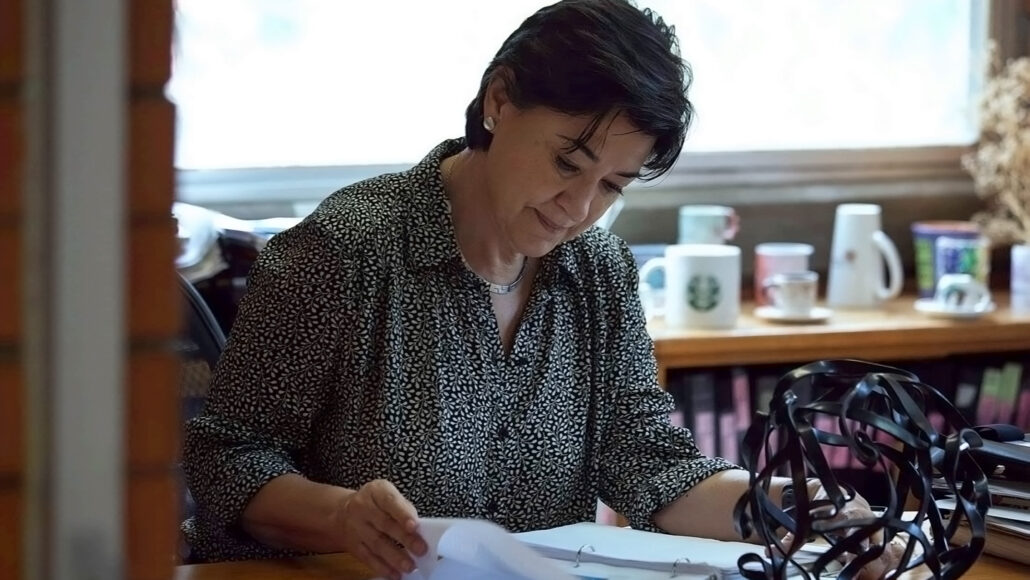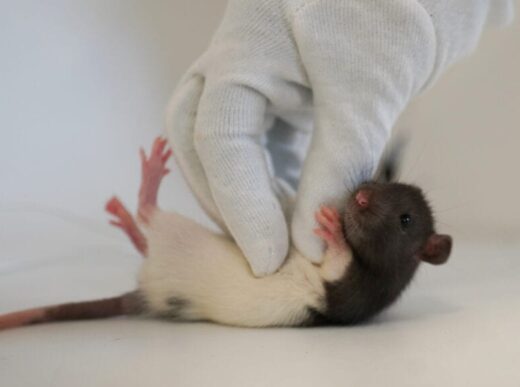Susana López Charretón, a prominent figure in Mexican virology, has left an indelible mark on the field. Her contributions extend beyond accolades like the UNESCO–Carlos J. Finlay Prize for Microbiology and the L’Oréal-UNESCO For Women in Science award. As the sole female Mexican scientist to have edited the Journal of Virology, her influence reverberates through academia and scientific communities. However, it is not the laurels that motivate her; rather, it’s her unquenchable curiosity and dedication to unraveling complex problems.
“For me, science is a way of living, something that fulfills me completely,” López Charretón states emphatically, highlighting her profound passion for the subject. Her four-decade-long journey has been centered on the intricate world of rotaviruses – double-stranded RNA viruses that were first identified in 1973 by Australian virologist Ruth Bishop. These viruses, responsible for severe gastroenteritis, particularly in babies and young children, were once a significant global health threat, causing the deaths of over 100,000 children under five annually.
López Charretón embarked on her journey to decipher the mechanisms of rotavirus infection in the late 1970s, when their complexities were still unexplored. Collaborating with her husband, Carlos Arias Ortiz, she embarked on a groundbreaking exploration that would change the trajectory of rotavirus research and lead to the development of life-saving vaccines.
The duo’s pioneering research laid the foundation for understanding how rotaviruses infiltrate human cells, replicate their genetic material, and cause gastroenteritis. As Harry Greenberg, a retired American virologist, remarks, “Science is mostly a series of small steps that move knowledge forward.” López Charretón’s work exemplifies this truth, contributing significantly to the formulation of vital vaccines.
A Trailblazer’s Unyielding Pursuit of Science
López Charretón’s scientific journey was set in motion by her insatiable childhood curiosity. Raised in an environment that encouraged her ambitions, she pursued basic biomedical research at the National Autonomous University of Mexico (UNAM). Guided by Romilio Espejo, a Chilean virologist, she ventured into the realm of rotaviruses. Captivated by their intricate nature, López Charretón’s fascination with these viruses grew. Her partnership with Carlos Arias, who shared her enthusiasm, solidified her path in virology.
Through the years, their research unveiled the multifaceted process of rotavirus invasion into host cells. Contrary to prevailing beliefs, their work revealed that rotaviruses employ intricate strategies to interact with cell surfaces, with specific interactions taking place in lipid rafts. Their groundbreaking model describes how the viruses navigate cellular defenses and infection pathways, a testament to López Charretón’s commitment to unraveling complex biological mysteries.
A Mentor and Advocate for Aspiring Scientists
López Charretón’s impact transcends her scientific contributions. She has ardently championed the growth of Mexico’s scientific community, nurturing young virologists and instilling in them the same rigor and passion that define her. Her role as a mentor extends beyond academic guidance; she imbues her students with confidence, transforming lives and futures.
Liliana Sánchez Tacuba, a product of López Charretón’s mentorship, attests to her transformative influence. Raised in a region where educational opportunities for women were scarce, Sánchez Tacuba emerged as a research scientist in an American immunology company, driven by López Charretón’s unwavering support. “She changed my life,” Sánchez Tacuba attests, highlighting the profound impact of López Charretón’s mentorship.
Embracing Challenges and Shaping the Future
Amid her ongoing exploration of rotaviruses, López Charretón’s involvement in monitoring and sequencing coronavirus strains during the COVID-19 pandemic underscores her dedication to tackling pressing global issues. She co-founded the Genomic Surveillance Consortium of Mexico, emphasizing the need to bolster Mexico’s expertise in virology. The pandemic’s lessons underscored the importance of nurturing a robust scientist pipeline to address such challenges effectively.
As López Charretón’s journey continues, her legacy is one of scientific discovery, mentorship, and unrelenting pursuit of knowledge. Her impact on understanding and combatting viruses stands as a testament to the transformative power of curiosity, dedication, and mentorship. With each step, she shapes the future of science and inspires generations of aspiring scientists to follow in her trailblazing footsteps.















